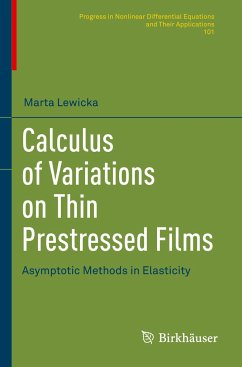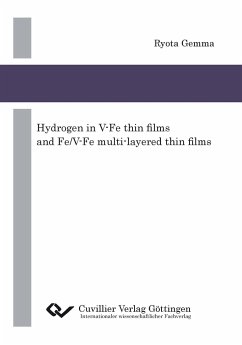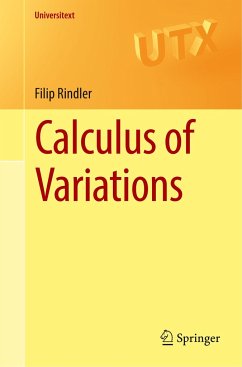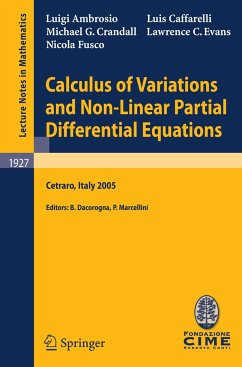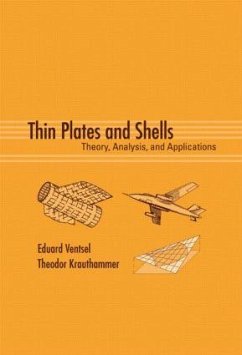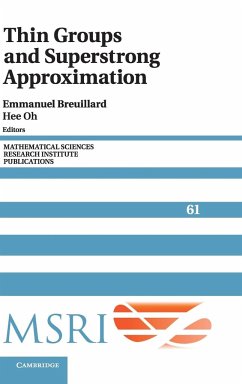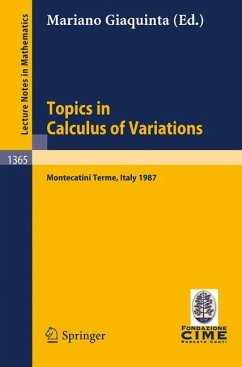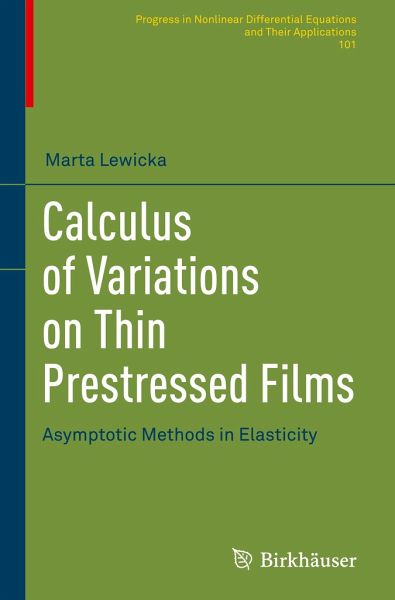
Calculus of Variations on Thin Prestressed Films
Asymptotic Methods in Elasticity
Versandkostenfrei!
Versandfertig in 6-10 Tagen
121,99 €
inkl. MwSt.
Weitere Ausgaben:

PAYBACK Punkte
61 °P sammeln!
This monograph considers the analytical and geometrical questions emerging from the study of thin elastic films that exhibit residual stress at free equilibria. It provides the comprehensive account, the details and background on the most recent results in the combined research perspective on the classical themes: in Differential Geometry - that of isometrically embedding a shape with a given metric in an ambient space of possibly different dimension, and in Calculus of Variations - that of minimizing non-convex energy functionals parametrized by a quantity in whose limit the functionals becom...
This monograph considers the analytical and geometrical questions emerging from the study of thin elastic films that exhibit residual stress at free equilibria. It provides the comprehensive account, the details and background on the most recent results in the combined research perspective on the classical themes: in Differential Geometry - that of isometrically embedding a shape with a given metric in an ambient space of possibly different dimension, and in Calculus of Variations - that of minimizing non-convex energy functionals parametrized by a quantity in whose limit the functionals become degenerate.
Prestressed thin films are present in many contexts and applications, such as: growing tissues, plastically strained sheets, engineered swelling or shrinking gels, petals and leaves of flowers, or atomically thin graphene layers. While the related questions about the physical basis for shape formation lie at the intersection of biology, chemistry and physics, fundamentally they are of the analytical and geometrical character, and can be tackled using the techniques of the dimension reduction, laid out in this book.
The text will appeal to mathematicians and graduate students working in the fields of Analysis, Calculus of Variations, Partial Differential Equations, and Applied Math. It will also be of interest to researchers and graduate students in Engineering (especially fields related to Solid Mechanics and Materials Science), who would like to gain the modern mathematical insight and learn the necessary tools.
Prestressed thin films are present in many contexts and applications, such as: growing tissues, plastically strained sheets, engineered swelling or shrinking gels, petals and leaves of flowers, or atomically thin graphene layers. While the related questions about the physical basis for shape formation lie at the intersection of biology, chemistry and physics, fundamentally they are of the analytical and geometrical character, and can be tackled using the techniques of the dimension reduction, laid out in this book.
The text will appeal to mathematicians and graduate students working in the fields of Analysis, Calculus of Variations, Partial Differential Equations, and Applied Math. It will also be of interest to researchers and graduate students in Engineering (especially fields related to Solid Mechanics and Materials Science), who would like to gain the modern mathematical insight and learn the necessary tools.





